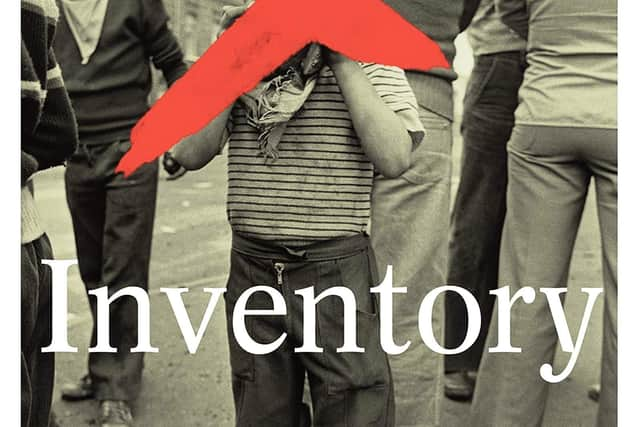‘Stories might be lost forever if they remain untold’


‘When an old person dies, it’s a library burning down’ - Amadou Hampâté Bâ.
In 2013, I worked on Derry’s City of Culture project, collecting stories from the community.
Advertisement
Hide AdAdvertisement
Hide AdThose I spoke with shared memories of the Second World War, the shirt factories, the civil rights movement and the Troubles but they also revealed other tales.


A retired sailor, for example, told me he’d witnessed a nuclear blast on Kiritimati which blinded all the birds on the island. What he said was spectacular and devastating and, yet, he spoke, over a cup of tea, as if we were talking about the weather.
Afterwards, I began listening to the people around me in a different way. I no longer rolled my eyes when my grandfather told me his fisherman tales. I asked my mother and aunts about the hidden lives of my grandmothers. I started to sift through photographs and documents about Springtown Camp, where my father and his family had grown up, or rather been forced to grow up. And fascinating stories began to emerge that had been there all along, hiding in clear sight.
Remembrance is important, not least because there are those who will airbrush the past and their role in it, just as they’ll lay claim to the present and the future. If you listen to the DUP, for instance, you’d think there had never been a border. As Chico Marx put it in ‘Duck Soup’: “Well, who are you gonna believe? Me or your own eyes?”
Advertisement
Hide AdAdvertisement
Hide AdMy generation were bystanders; close enough to observe the Troubles and its aftermath but distant enough, by the grace of god, not to be immersed in it as our parents were or compelled to become directly involved. This puts us in a decent position to bear witness in writing, films, TV series etc., There are a number of obstacles to this, all of which ask the question: “Who are you to talk?” One is the internal voice of imposter syndrome. Another is the admirable down-to-earth stoicism we have in the north, which can be paralysing if it goes too far. The third is that culture, and even the definition of normality itself, is defined by a small group of people as incurious as they are privileged.
It’s likely that you will be treated like an outsider because you are not Oxbridge-educated or from the right part of London, that you are working-class or from the north or west of the Bann, the wrong accent or the wrong kind of other. However questionable the literary merit of a book like ‘Inventory’ may be, the lives of the people within were, undoubtedly, eventful with tales of smuggling, war, desertion, oppression and resistance, excess, love, and loss.
And, yet, it’s with ease that gatekeepers can say, and have, “There are no stories here.” All the while, those libraries, as Amadou Hampâté Bâ warned, are continuing to burn.
Delving into the past for the book, it became apparent that no two people have quite the same memory of what happened. Events are objective but the way we see and remember them is subjective.
Advertisement
Hide AdAdvertisement
Hide Ad‘Inventory’ is as much a book then about the flaws and complexities of memory as it is about the facts, just as history is not simply the past but our stories of the past. It’s easy to forget amidst dates and statistics that life happens to individuals.
There was, shamefully, little truth and reconciliation in the peace process so we have to reconcile ourselves with the truth. There’s no question that shining light onto certain subjects is not easy. If there’s no pain in doing so, you’re not close enough.
Yet, trauma, as the legacies of the Troubles have shown, only grows in secrecy and darkness.
Our stories matter because we are mortal, and our experiences are finite. What seems throwaway now will look very different to those living in a hundred years’ time, when all of this is changed and all of us have gone. Our stories may outlive us, our objects almost certainly will. I chose to write ‘Inventory’ with each chapter told through a different household item, as it was easier to write about difficult subjects that way. You talk about, say, a radio, when you’re really talking about grief. Objects, even junk, can have a kind of secret life.
Advertisement
Hide AdAdvertisement
Hide AdThey connect generations. We project stories onto them. They become filled with resonances, meanings, personal mythologies.
In these days when we realise how indebted we are to those in the NHS, we might see the value of the words of its founder Nye Bevan: “This is my truth, tell me yours.”
In these days when we are indoors, with time and space to talk and listen, it’s worth wondering what stories are around us right now, hiding in clear sight, and how might they be lost forever if they remain untold and we let the libraries burn.
‘Inventory’, by Darran Anderson, is published by Chatto & Windus.